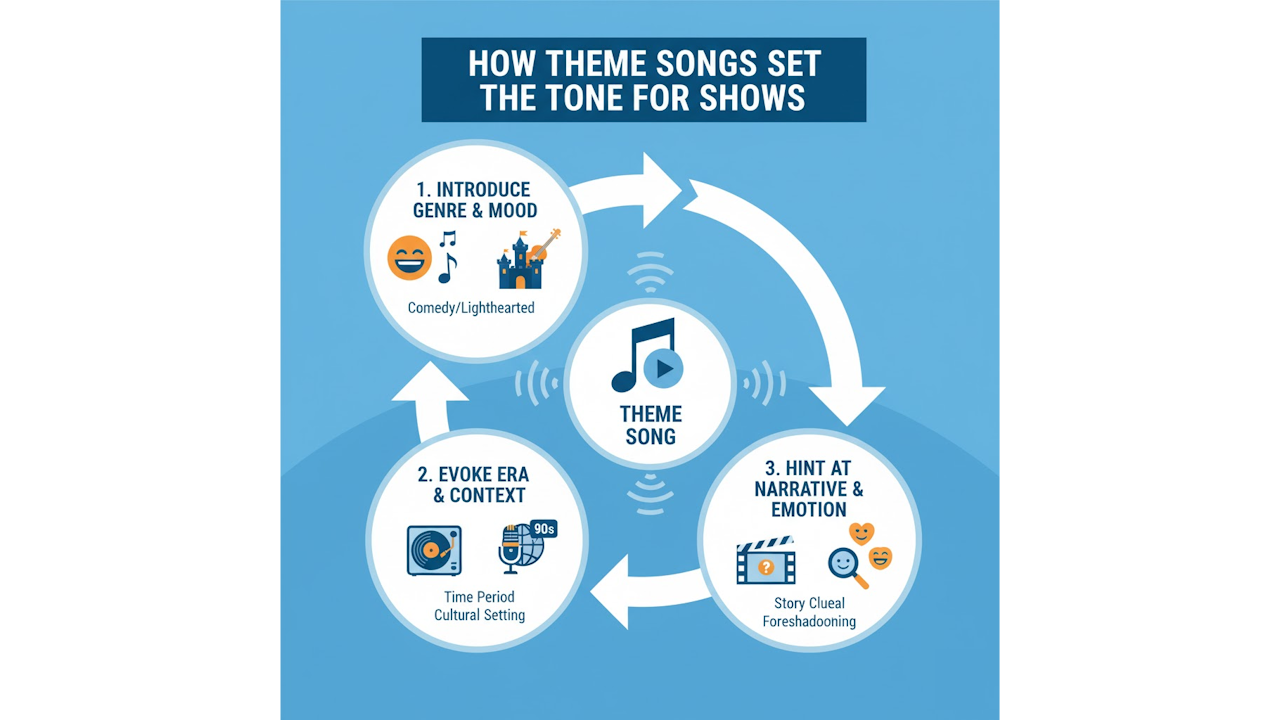Theme songs are often an overlooked but incredibly powerful element in television shows. Far more than just catchy tunes, they serve as sonic blueprints, expertly crafting the initial impression and establishing the entire mood and atmosphere of a series before a single line of dialogue is spoken. A well chosen theme song is a masterclass in psychological priming, preparing the audience for the journey ahead.
Consider the diverse emotional landscapes theme songs can evoke. A jaunty, upbeat melody signals a comedy, inviting viewers to relax and anticipate laughter. Think of the iconic “Where Everybody Knows Your Name” from Cheers, instantly conveying warmth, community, and good times. The music is welcoming, familial, and sets up the premise of a place where troubles melt away. Similarly, the playful and quirky instrumentation of The Office theme perfectly encapsulates the awkward humor and mundane charm of Dunder Mifflin. It’s quirky, slightly off kilter, and immediately identifies the show’s unique comedic voice.
On the other end of the spectrum, a dark and brooding orchestral piece prepares an audience for drama or suspense. The menacing strings and haunting vocals of the Game of Thrones theme are not merely background noise; they are a declaration of epic scope, political intrigue, and impending conflict. Every note hints at the vastness of Westeros and the weighty struggles to come. Similarly, the stark, unsettling melody of The X Files theme immediately plunges viewers into a world of government conspiracies, paranormal phenomena, and lingering questions. It’s designed to create unease and curiosity, perfectly aligning with the show’s core themes.
Beyond genre identification, theme songs can also communicate specific eras or cultural contexts. The energetic and soulful track for The Fresh Prince of Bel-Air not only introduces the main character but also anchors the show firmly in a 90s hip hop aesthetic. The lyrics themselves act as a mini synopsis, telling the origin story and hinting at the culture clash to come. For period pieces, the music selection is even more crucial. The intricate, almost regal composition of the Downton Abbey theme transports viewers to early 20th century England, hinting at societal hierarchies and traditional grandeur. The music speaks of heritage, formality, and a bygone era.
A theme song also offers a condensed narrative preview. Sometimes, this is done explicitly through lyrics, as seen in shows like Gilligan’s Island or The Brady Bunch, where the lyrics directly explain the premise. More often, it’s an implicit narrative conveyed through instrumentation, tempo, and mood. The frantic, percussive opening of ER immediately conveys the high stakes, fast paced environment of an emergency room, preparing viewers for intense medical drama. The music itself feels like an adrenaline rush. Conversely, the gentle, melancholic piano of Six Feet Under suggests a contemplative, somber exploration of life, death, and family dynamics, setting a tone of quiet introspection.
Finally, theme songs create a powerful sense of identity and brand recognition for a show. They become synonymous with the series, an auditory signature that is instantly recognizable and often deeply nostalgic. Years after a show has ended, hearing its theme song can immediately transport a viewer back to their experience watching it. This indelible link solidifies the theme song’s role as a vital component in a show’s lasting legacy, a testament to its power in shaping audience perception and establishing the show’s unique place in popular culture. The humble theme song, then, is anything but trivial; it is an indispensable architect of a show’s soul.

